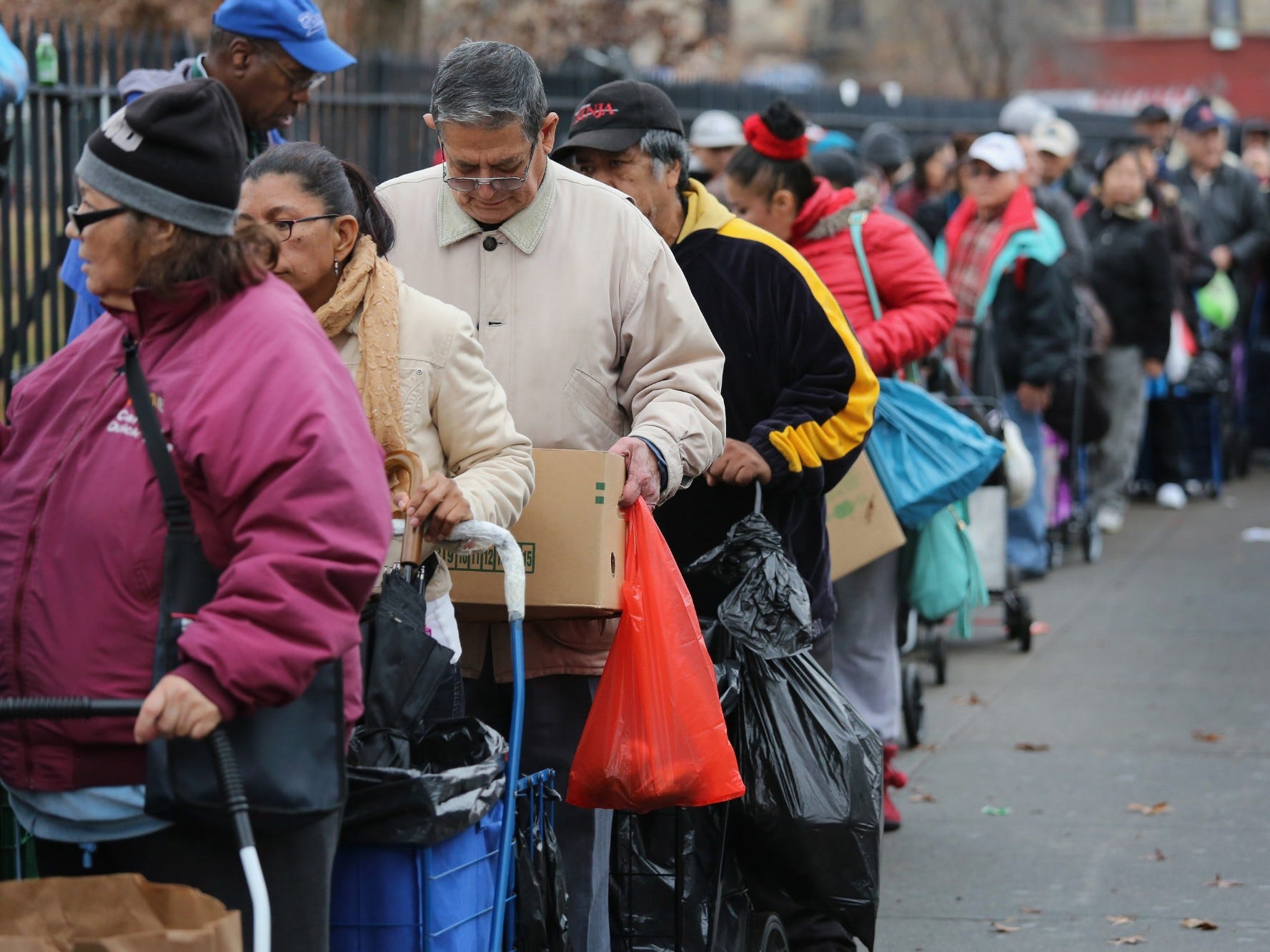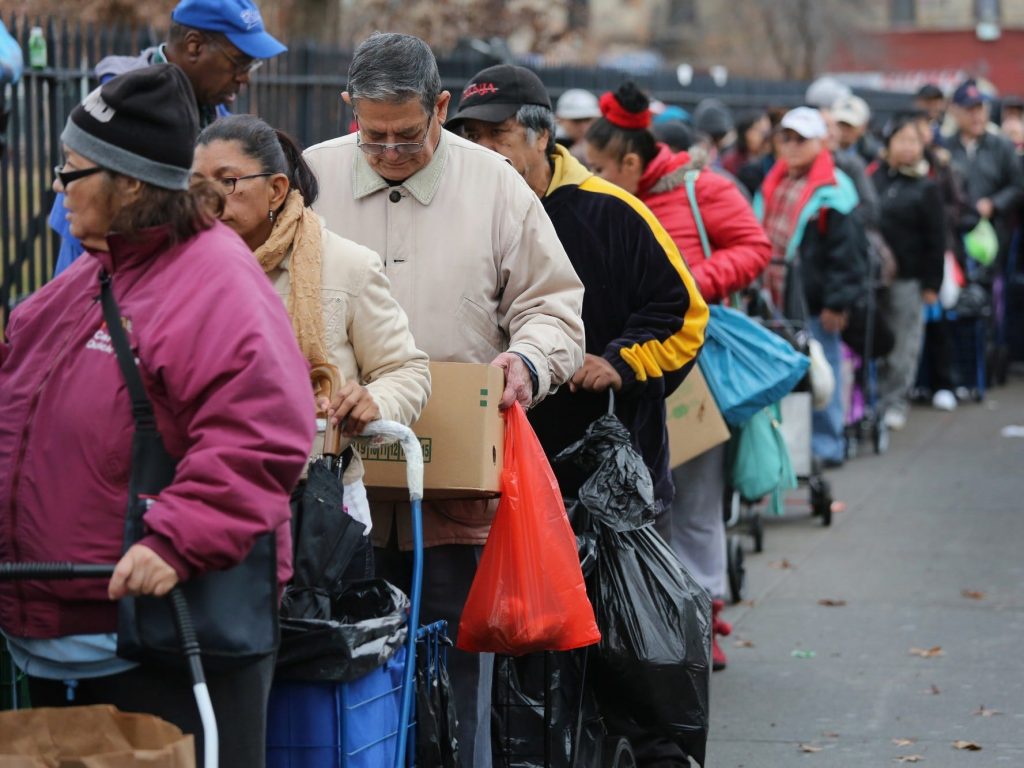
John Moore/Getty Images
- Democrats want to include a boost to Supplemental Security Income (SSI) in their social spending bill.
- The Urban Institute found this proposal would lift 3.3 million people out of poverty.
- It would also cut poverty for SSI recipients, who are severely disabled or elderly, in half.
- See more stories on Insider's business page.
There are close to 40 million people in poverty in the US. The Democrats' $3.5 trillion social welfare bill aims to change that, with one proposal aiming to take on the impoverished elderly and disabled communities in the country.
The Urban Institute, a left-leaning nonprofit, released a report on Monday that found Democrats' proposal to boost the Supplemental Security Income (SSI) program would lift 3.3 million people out of poverty and cut the poverty rate of SSI recipients by more than half.
To put that spending in perspective, US GDP in 2020 was $20.9 trillion, while the Treasury Department estimated the tax gap – the difference between what's owed to the Internal Revenue Service and what's collected – was $600 billion in 2019. If left unaddressed, Treasury says that gap could rise to $7 trillion over the next decade. There's money to pay for lifting people out of poverty, in other words, and the question is whether a fraction of $3.5 trillion is worth it.
The SSI program provides monthly checks to those who have a disability or are over the age of 65 and are low-income, but according to the report, the maximum federal SSI benefit is $794 per month – $279 below the federal poverty level. In June, Ohio Sen. Sherrod Brown reintroduced the Supplemental Security Income Restoration Act to assist the nearly 8 million Americans relying on those monthly checks, who fell victim to "decades of shameful federal neglect," Brown said in a statement.
According to the Urban Institute, these four measures in Brown's bill would significantly reduce poverty:
- Increase the SSI benefits for unmarried people to 100% of the federal poverty level, or $1,073 in 2021;
- Increase the SSI benefits for married couples who both qualify to 200% of the federal poverty level, or $2,146 in 2021;
- Increase the non-wage income exclusion from $20 a month to $128 a month in 2021;
- And eliminate the policy that considers recipients who live in someone else's home to be receiving "in-kind support," which would lower their benefit by a third.
"The gains from these policy changes would be highly targeted to a population experiencing serious economic hardship, including children and adults who are blind or have severe disabilities that prevent them from working and people over age 65," the report said.
The Democrats' $3.5 trillion reconciliation bill includes other measures to address poverty, like giving families with children monthly checks through an extended child tax credit. But the size of the bill has some more moderate Democrats concerned, and given that fully funding Brown's bill would require about $510 billion in new spending, according to the Social Security Administration, its inclusion won't be easy.
Insider reported last week that West Virginia Sen. Joe Manchin, a moderate Democrat, called on his colleagues to put a "pause" on the bill given its price tag, which could imperil the passage of many proposals, such as an SSI boost, universal pre-K, and free community college.
But, as Brown wrote in a letter to the Social Security Administration, raising asset limits would cost just $8 billion, showing potential for some of the measures in his bill to be included in the spending package if the whole proposal doesn't make the cut.
"The promise of Social Security is to ensure that no one in America should live in poverty - least of all our nation's seniors and people with disabilities," Brown said in a statement, adding that "Congress must prioritize these long-overdue reforms as part of upcoming recovery legislation."
